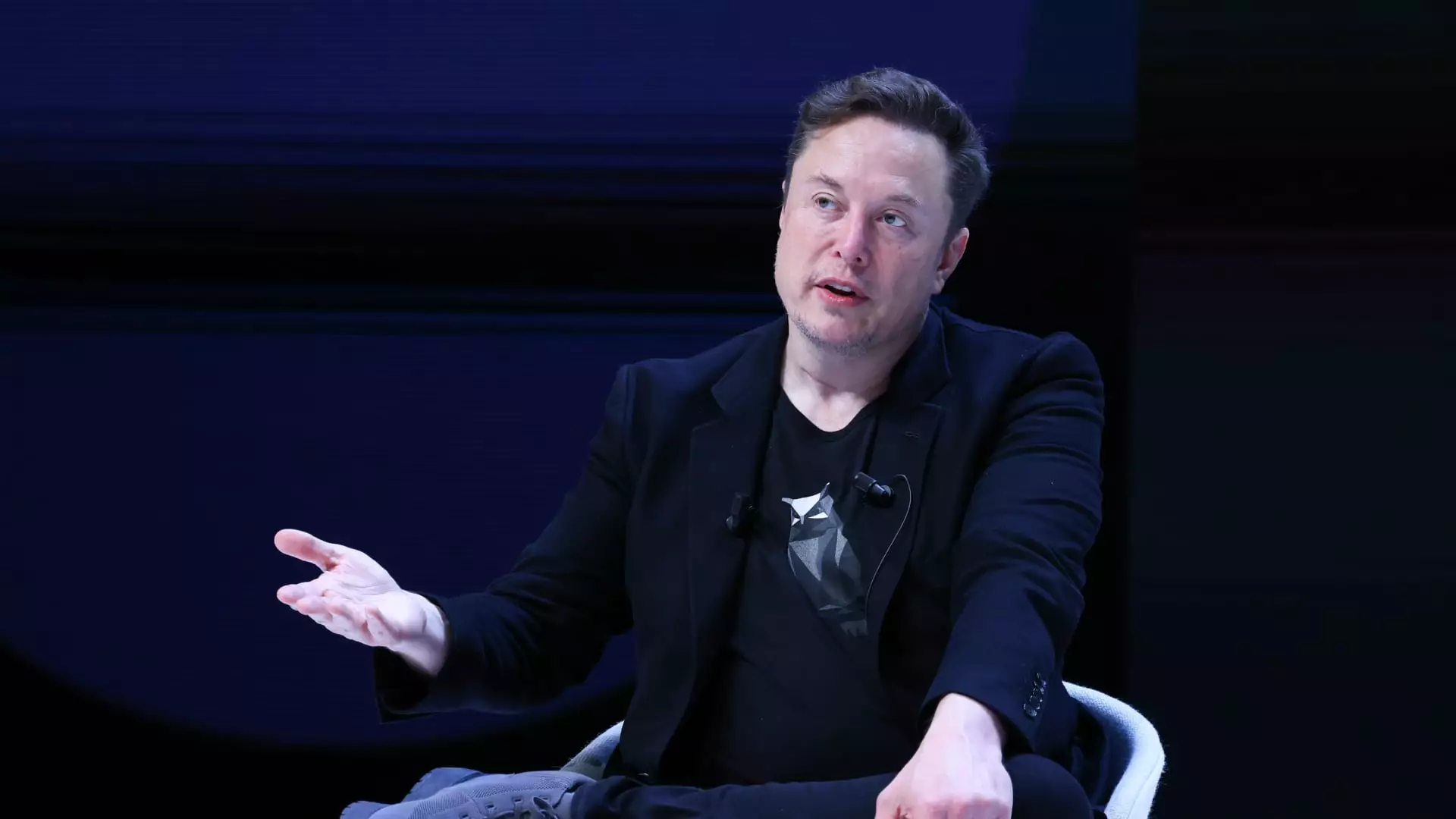Elon Musk, the enigmatic CEO of Tesla, recently took to social media to gauge public opinion on whether the electric car giant should invest a whopping $5 billion into his latest startup venture, xAI. This move comes at a time when Tesla is facing financial challenges, with second-quarter earnings falling short of analysts’ expectations for the fourth consecutive quarter. Musk’s decision to consider such a significant investment raises questions about the feasibility and impact of funneling billions of dollars into a relatively unproven entity like xAI.
Despite the buzz surrounding xAI and its potential to revolutionize the AI industry, Tesla’s shareholders are understandably wary of committing such a substantial sum of money to a startup that is still in its early stages of development. The fact that Musk himself acknowledged the need for board approval and a shareholder vote underscores the gravity of the decision to invest in xAI. With Tesla’s core automotive segment experiencing declining revenue, the prospect of allocating $5 billion to a new venture raises concerns about the company’s financial stability and long-term growth prospects.
On the surface, xAI’s focus on large language models and AI software products appears to be in line with industry trends, positioning the startup to compete with established players like Google, Microsoft, and OpenAI. However, the lack of concrete details about how xAI’s flagship product, Grok, is advancing Tesla’s technology leaves investors and industry observers skeptical about the potential return on investment. Musk’s characterization of Grok as a “politically incorrect and witty” alternative to existing chatbots raises questions about the practical utility and market appeal of xAI’s offerings.
The decision to invest in xAI has broader strategic implications for Tesla beyond financial considerations. Integrating xAI’s software into Tesla’s vehicles could potentially enhance the company’s autonomous driving technology and data infrastructure. Musk’s assertion that xAI has been instrumental in advancing Full Self-Driving and building Tesla’s new data center suggests that there may be synergies between the two entities. However, the ultimate success of this integration remains uncertain, with the potential risks and rewards of aligning Tesla’s future with xAI’s vision hanging in the balance.
As Tesla grapples with the aftermath of its earnings disappointment and investor backlash, the prospect of investing $5 billion in xAI adds another layer of complexity to the company’s trajectory. The unanswered questions surrounding xAI’s development, market positioning, and synergy with Tesla’s core business raise doubts about the wisdom of such a substantial investment. Musk’s ambitious vision for xAI as a disruptive player in the AI industry may be overshadowed by the practical challenges of bringing this vision to fruition.
Elon Musk’s proposal to invest $5 billion in xAI reflects his relentless pursuit of innovation and willingness to take risks. However, the lack of clarity around xAI’s value proposition, market differentiation, and integration with Tesla’s operations leaves room for skepticism and scrutiny. As Tesla navigates the uncertain terrain of the electric vehicle market and AI technology landscape, the decision to invest in xAI represents a pivotal moment that could shape the company’s future direction.


Leave a Reply